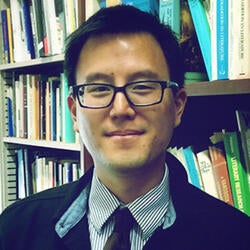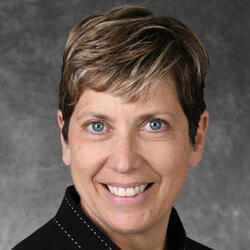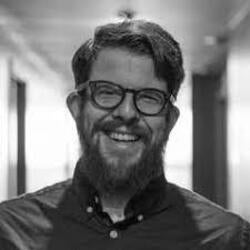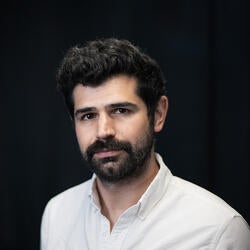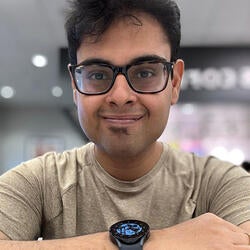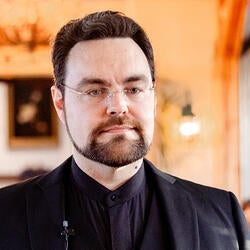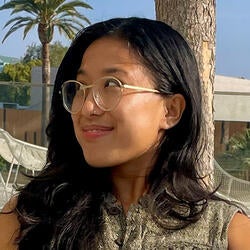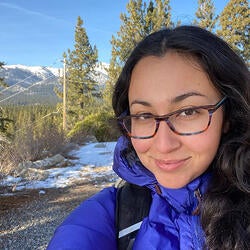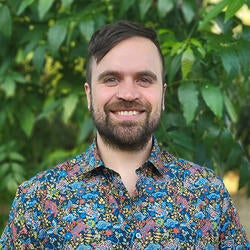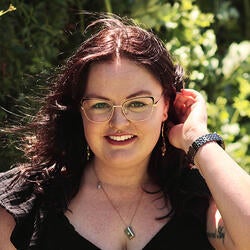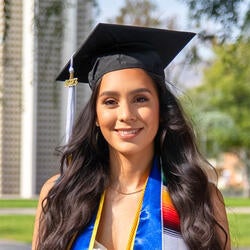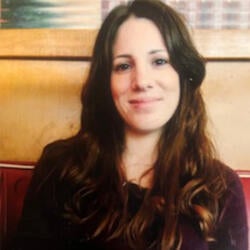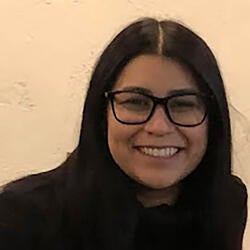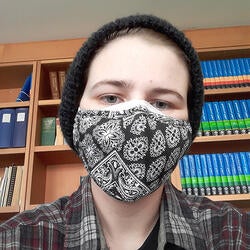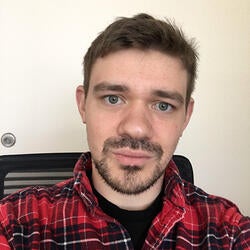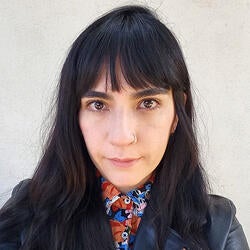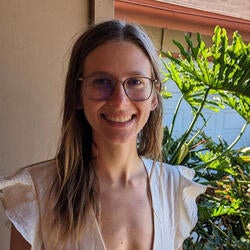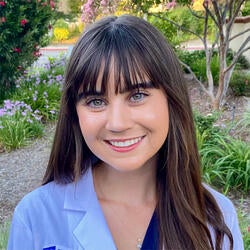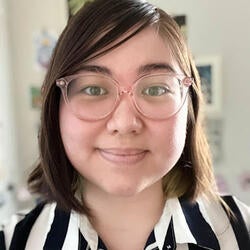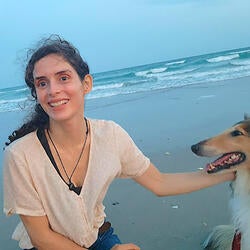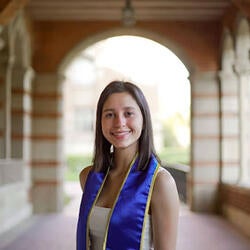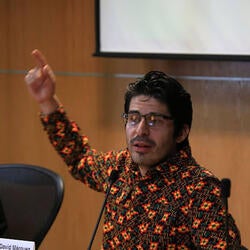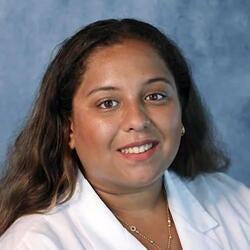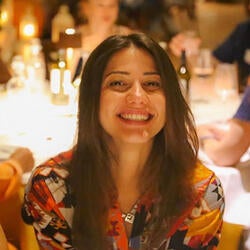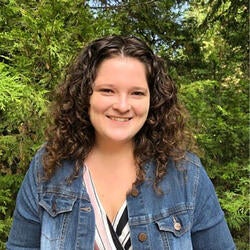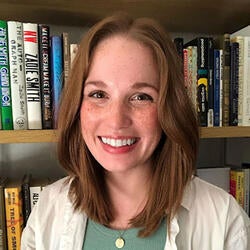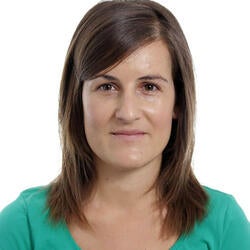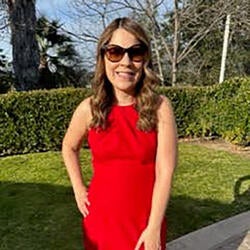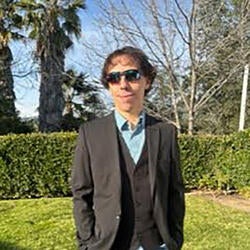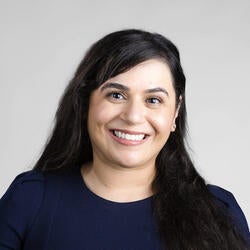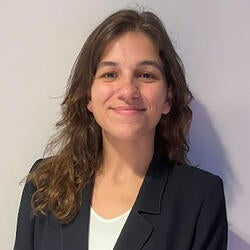
People
Co-Principal Investigators
For any questions, comments, or concerns, please contact any of the following co-principal investigators for the Health Humanities and Disability Justice Lab. Please let us know if you are interested in joining our efforts.
Graduate Fellows
-
New Fellows
Noah Amir Arjomand
Noah Amir Arjomand (he/him) is a sociologist, documentary filmmaker, and MFA screenwriting student in the Creative Writing and Writing for the Performing Arts program. He is interested in making films and devising storytelling techniques that incorporate the perspectives of people with disabilities and address topics of cross-cultural and atypical/impaired communication.
The HHDJ initiative is helping Noah to organize screenings and public conversations around his award-winning documentary Eat Your Catfish, about the last years of his mother's life with amyotrophic lateral sclerosis (ALS) and caregiving relationships within his family. He is also developing a series about medical education and empathy, co-written with his partner and frequent collaborator Brett Umlauf and in conversation with HHDJ faculty.
Abhinandan Banerjee
Abhinandan Banerjee (he/him) is an international PhD student at the Department for the study of religion. He holds a double-masters in History from the Department of History, Jadavpur University, located in Kolkata, India. His broad research interests include Jainism, religion in pre-colonial and colonial South Asia, medical humanities and gender studies. His thesis dissertation will analyze how Jains in Early South Asia challenged contemporary hegemonic notions of masculinity, via reimaging dominant paradigms of maleness through a language of non-violence.
The HHDJ initiative is supporting Abhinandan’s project to investigate the archives of Kolkata, New Delhi and Ahmedabad in India, and analyse the role of the Jain community in shaping Public Health in Late-Colonial India. His research will focus on the evolution of the concept of “Jain Science", a hybrid discourse that contested race and caste-coded hierarchies of the body in Late Colonial Medical Science, leading to improvements in Public Health for Dalits in Northern and Western India.
Deoin Cleveland
Deoin Cleveland [he/him] is a PhD student in the Study of Religion at the University of California, Riverside. He earned his degree in Religious Studies at California State University, Long Beach, where he served as president of the Religious Studies Student Society and received the Distinguished Undergraduate Award. He is also a Master of Divinity student with a focus on advocacy and community leadership and he holds a Certificate in Autoethnography from Bradley University. Deoin's research focuses on analytics of power, queer studies in religion, changing identities in religious spaces, and spirituality in wellness and healing. Deoin’s primary work is with communities of theatrical performers and New Religious Movements, working within the framework of North American religious experience. He has presented at the American Academy of Religion’s Annual Meeting and the Conference on Current Pagan Studies. Deoin is currently the Managing Editor for QTR: A Journal of Trans and Queer Studies in Religion. He has worked as a Teaching Assistant in the Department for the Study of Religion specializing in Religious Myths & Rituals as well as Religion & Science. In his free time he performs environmental theater and plays tabletop roleplaying games.
The HHDJ initiative is supporting Deoin’s work by facilitating ethnographic fieldwork among theatrical performers engaging in radical self-therapy at the intersection of religious studies, queer studies, critical disability studies, and abolition medicine. Deoin is grateful for the opportunity to work with the HHDJ Lab and to be a part of its mission of bringing medicine and humanities into conversation with each other.
HL Doruelo
HL Doruelo is a queer, disabled Filipinx organizer, scholar, artist, and curator from Chicago and Iloilo, Philippines. Their work exposes asymmetries in the migrant care labor industry and invests in intergenerational storytelling, Filipinx performance, collective care and grief practices, and prison abolition. HL is a PhD student in the Department of Ethnic Studies at UC Riverside and has been selected to participate in the 2024 Inter-Asia Cultural Studies Society Summer School at the University of the Philippines-Diliman. HL has received recognition as an Imagining America Publicly Active Graduate Education (PAGE) Fellow, UCR Health Humanities and Disability Justice Fellow, Links Hall CO-MISSION Curator-in-Residence, NYU Sulo Philippine Research Fellow, and Posse Scholar. HL holds an M.A. in Performance Studies from NYU Tisch School of the Arts and a B.A. in Public Policy Analysis, Psychology, and French from Pomona College. They enjoy poetry, thrifting, karaoke, Avatar The Last Airbender, cooking with family & friends, and spending time near the ocean.
Sahar Foruzan
Sahar Foruzan is a Ph.D. candidate in the department of Anthropology at the University of California, Riverside. Her work engages human-environment relationships in contexts of environmental injustices to explore connections between human and nonhuman health and environmental management. Sahar’s dissertation focuses locally on the Salton Sea in southeastern California and centers how different actors experience and imagine the ecological restoration of the lake to contribute to our collective understanding of the possibilities and paths for repairing environmental degradation alongside community health. Her work is driven by the belief that we all have a right to healthy environments that support us and help us to thrive as individuals and as communities.
The HHDJ fellowship is supporting Sahar’s fieldwork as she explores the crossed histories and experiences of environmental degradation with work in disability justice.
Detrich Galloway
I am Detrich Galloway, a non-traditional graduate student who is pursuing a PhD in Medical Anthropology. I am a former registered nursing student, who holds a Bachelor of Science (BS) degree in Public Health from California State University, Northridge and I recently acquired my Master of Arts (MA) degree in Anthropology here at UC Riverside. My research focuses on maternal and infant health disparities among Black birthing individuals in the US. I study the ways in which community-based birth workers (doulas) employ intergenerational birthing knowledge systems to assist Black women navigate the existing maternal healthcare system; thereby improving life-chances and achieving equitable health outcomes for these individuals and their families. The goals of my research is to restore and make accessible a traditional cultural archive for community-centered birthing practices among indigenous and marginalized birthing individuals. This involves dismantling pathologized childbirth practices and reestablishing traditional natural childbirth as the authoritative source of birthing knowledge in institutional care settings.
My Fieldwork project for the HHDJ: I plan to conduct fieldwork in the Inland Empire (IE) using a community-participatory framework that incorporates community-trained doulas for educating the community on the effects of preeclampsia and eclampsia during pregnancy and the postpartum period. Over 80% of maternal deaths in the US are preventable, and nearly 50% occur in the first year after childbirth. Research indicates that the primary cause of these high rates is the lack of timely follow-up care after pregnancy complications. Community-based doulas are non-medical paraprofessionals who provide continuous physical, emotional, and informational support before, during, and after childbirth. Doula support has proven effective for reducing adverse maternal health outcomes; however, they are not usually compensated for extended postpartum care and support. Recent California statistics show that Black women are nearly six times more likely than other birthing individuals to experience pregnancy complications during childbirth. Among those affected by preeclampsia and eclampsia, most are between ages 15 to 24 and often lack knowledge of the warning symptoms or have their concerns dismissed or misdiagnosed.
The HHDJ Initiative is supporting Detrich's fieldwork into community-based doulas in a community-led campaign to educate the Inland Empire community about pre-eclampsia and eclampsia. Community-based doulas will also be trained to teach their clients strategies for monitoring symptoms and managing blood pressure during pregnancy, childbirth, and the postpartum period, using alternative and complementary therapeutic approaches grounded in traditional birthing support practices. This campaign seeks to reduce rates of postpartum death related to preeclampsia or eclampsia birth complications in the IE.
Nico Valdivia Hennig
Nico Valdivia Hennig (He/They) is an award-winning game artist, ludic activist, and cultural studies researcher with over a decade of experience in game design. They are a PhD candidate in Hispanic Studies at the University of California, Riverside, with a Designated Emphasis in Speculative Fiction. Their research focuses on ludic activism, game design, and indigenous game production in Latin America. Nico co-founded Niebla Games, which has launched both board and video games for PC and mobile platforms. In 2025, their studio won the Google's Indie Games Fund and in 2022 was part of the Google Indie Games Accelerator program. Notable accolades include "Best Game Design" at EVA Córdoba 2019 in Argentina, "Best Chilean Studio of 2021", finalist for the Explorer Award at the AMaze/Berlin Festival of Experimental Game Art 2024, and finalist for both Best Social Matters Game and Best Diversity Game at the BIG Festival/Gamescom Latam 2024 in São Paulo, Brazil. They are also a co-founder of Río Junto, a Latin American cultural exchange collective, based in Southern California. Recently, Nico received the Barricelli Award for Interdisciplinary Research Dissertation and the Speculative Play and Just Futurities Fellowship at Indiana University and the Mellon Foundation.
The HHDJ initiative is supporting Nico's work through the Río Junto Collective, including leading the "Mini-Games for Recreational Equity" and "Accessible Games to Communicate Original Research" workshops, teaching participants to create accessible video games using tools like Bitsy, Downpour, and Twine. Additionally, Nico will moderate the "Accessible Game Creation" panel, which focuses on inclusive game development tools and fostering technological literacy. Nico's efforts are aimed at promoting recreational equity and inclusivity in game creation, aligning with the goals of the health humanities.
Marissa Adriana Hull
Marissa Adriana Hull is a PhD candidate in History. Her research focuses on the intersections of gender and disability in the nineteenth-century United States. In her work, she centers d/Deaf women, highlighting their contributions to the creation of American Sign Language and the advent of deaf education in the United States. By combining methods from Critical Disability Studies and archival studies, Marissa challenges archival deficits and brings marginalized historical subjects to the forefront of Deaf history.
The HHDJ Initiative is supporting Marissa's research and public presentations on d/Deaf women, ASL, and the advent of deaf education in the United States.
Christina Jeffredo
Christina Jeffredo is a doctoral student in the School Psychology program at the University of California, Riverside (UCR). She graduated from UCR in 2022 with a two Bachelors of Arts in Political Science and Education, Society, and Human Development. Her passion for advocacy started when she interned for Assemblymemeber Eduardo Garcia, where she focused on equity in the Coachella and Imperial Valley in education, health, and infrastructure due to the rural and lower socioeconomic status this area faces as a predominantly immigrant community. While volunteering and working in the educational field Christina recognized the disparities the foster youth community faces due to barriers stemming from a multitude of issues such as systemic oppression. Christina is currently a serving committee member on the School Association of School Psychology (SASP) board.
The HHDJ Initiative is supporting Christina's work bringing awareness to this issue through research and public conference presentations.
Jaye Johnson
Jaye Johnson (they/them) is a graduate student in the English Ph.D. program. They have investments in the understanding of Black queer cultural production with a concentration on the afterlives of enslavement across the American Diaspora. Thinking through the ways in which enslavement haunts the quotidian existence of Black queer individuals, Jaye is currently focused on representations of prevailing trauma in popular culture across various media.
The HHDJ initiative is supporting Jaye’s work research and public presentations on intersections of trauma, race, and queerness.
Sarah Line
Sarah Line is a graduate student in the English Department studying classical and early modern literature with a special interest in learning differences and access pedagogies as a teacher and in logics of intellectual and rhetorical ability in early modern theater and culture as a researcher. She earned her BA at Cal Poly Pomona, and her MA at King’s College London, where she studied militarism and the figure of the soldier in Shakespeare’s plays.
In addition to her research, Sarah has been an educator in several capacities, and the HHDJ fellowship is supporting Sarah’s teaching interest in pedagogy and disability and her research interests in intersectionality, disability, and early modern drama.
Ana Magaly Ojeda
Ana Magaly Ojeda (she/her/ella), a PhD student, in Sociology at the University of California, Riverside, also completed her Master of Arts in Sociology at the same institution. Prior to embarking on her graduate studies, Ana completed her Bachelor of Arts degree at California State University, San Marcos, with a major in criminology and justice studies. Ana’s identities as a member of a mixed-status family and as a system-impacted person have significantly influenced the trajectory of her research and educational endeavors.
The HHDJ is supporting Ana in conducting field research for her dissertation. Ana’s dissertation delves into the experiences of parents within immigrant families who have a child either currently or formerly involved in the youth carceral system. Her dissertation study seeks to expand upon the theory of multifarious punishment initially introduced in her master's thesis. Multifarious punishment refers to the legal, financial, and emotional repercussions inflicted on individuals situated at the intersection of two societal systems. The study focuses on intersectionality in terms of institutions and the identities built through the punitive forces of multiple social institutions, that subsequently deteriorate the health and well-being of persons. Informed by the social determinants of health (SDH), the study aims to illuminate the mental health effects experienced by immigrant families who have youth carceral system involved children.
K Persinger
K Persinger is a graduate student in the English Ph.D. program at UC Riverside. Their research is rooted in an anti-capitalist, anti-colonial, and anti-imperial critical analysis of how hegemonic Global North engagements relationships to “outer” space are imagined, desired, and pursued. They are pursuing designated emphases in Speculative Fiction/Cultures of Science (SFCS) and Archive, Museum, Manuscript, and Print Studies (AMMP).
The HHDJ Initiative is supporting K’s research and public-facing scholarship on entanglements of eugenics, colonial genocide, and the aerospace industry.
Josh Prindle
Josh Prindle, a doctoral student in the English department at the University of California, Riverside, engages with forms of mental disability and the nineteenth century, with a special focus on intellectual disability, or learning disorders. He is interested in representations of intellectual disability as they reconstruct the ideas of the human, family, and community, especially considering the period’s scientific recategorization of individuals with intellectual disabilities. In this way, Josh’s project considers how representations of ‘idiocy’, ‘imbecility’, and ‘feeble-mindedness’ reconstructed understandings of intelligence and personhood across racial, gendered, and classed differences throughout the nineteenth century. The HHDJ initiative is supporting Josh's research, public presentation of research, and conference co-organizing in areas of health humanities at UCR.
Johanna Nieto Rojas
Johanna Nieto Rojas (Jo) is a Cultural Manager and Researcher, Co-founder of Rio Junto, a Latin American cultural exchange collective. Currently Jo is pursuing a doctoral degree in the Department of Hispanic Studies at UCR, with Designated emphases in "Corporalities & Embodiment" and "Archives, Museums, Manuscripts & Prints". Her research delves into how everyday practices such as weaving, cooking, and crafting build environments of care and restoration within communities grappling with violence. Through a collaborative decolonial approach involving artists, artisans and Indigenous communities in Latin America especially in Colombia, Jo aims to investigate and support the resilience and healing processes within these communities.
The HHDJ initiative is supporting Jo's work through the Río Junto Collective. Jo will direct "Weaving the Wounds," an exhibit exploring the Wayuu people's weaving practices as a form of care and resilience. She will also moderate "Weaving the Words," a panel discussion that brings together Latin American weavers and textile researchers to explore textile practices as tools for healing and community building. Jo's initiatives aim to connect diverse communities and promote social cohesion through the lens of health humanities. Additionally, Jo co-organized the "Accessible Games to Communicate Original Research" workshop, teaching participants to create accessible video games using tools like Bitsy, Downpour, and Twine to communicate their original research through accessible interactive experiences.
Catherine Wells
Catherine Wells is a Political Theory PhD student in the Political Science Department. She obtained an MA in Political Science from Central European University in 2020. She is originally from Greensboro, North Carolina.
Her research focuses on the intersections of democratic theory, social change, and the politics of public space. Catherine enjoys working on theoretical projects that bridge the gap between empirical and normative political science.
The HHDJ Initiative is supporting Catherine's work collecting oral histories of mutual aid networks and their efforts to build accessible systems of abolition medicine that resist the debilitating effects of capitalism.
Samantha Zimmer
As a medical student at UC Riverside School of Medicine, Samantha Zimmer's passion for disability advocacy is a driving force in her life. This passion was ignited during her undergraduate studies at UCLA, where she served as a coach for Special Olympics. In this role, she played a key part in fostering a community between UCLA students and adults with intellectual and developmental disabilities in the local area. This experience heightened her awareness of the pressing need for advocacy within this community.
To deepen her understanding, Samantha pursued a minor in Disability Studies, where she delved into the social, political, and cultural history of disability. As part of her studies, she interned at a local high school tailored for students with diverse learning needs. After graduating from university, she volunteered for the UCLA Pathways program, a two-year initiative for adults with intellectual disabilities to earn a college certificate. In this role, Samantha developed a social curriculum and hosted weekly socials to help students build community and engage with one another.These experiences have solidified Samantha's dedication to advocating for improved access to health, education, and opportunities for individuals with intellectual and developmental disabilities. At UC Riverside School of Medicine, she has led various initiatives centered around disability health advocacy. Notably, she facilitated a partnership with Special Olympics Southern California, organizing a team of medical students and faculty to volunteer at a Special Olympics Medfest, which provides free health screenings for athletes.
Supported by the HHDJ Initiative, Samantha’s efforts in disability advocacy are gaining momentum. Her goal is not just to engage more medical students in this important work but also to inspire change in medical school curricula. She envisions a future where more disability health-related topics are incorporated into the curriculum, and where students have opportunities to learn directly from the Disabled community. Samantha's work is not just about advocacy, but about sparking a movement for change.
-
Continuing Fellows
Loren Barbour
Loren Barbour (she/they) is a doctoral student in the English department. Their research explores how the figure of the monster is taken up in popular culture and how we speak back to those representations. Of particular interest are the ways monstrous narratives reinforce, challenge, and reimagine discourses of deviance in ways that invite sympathy, affection, and even desire.
The HHDJ Initiative is supporting Loren in co-organizing an interdisciplinary faculty roundtable on pedagogy and disability and another session on disability research with another HHDJ Fellow, Allie Wood.
Paula Cucurella
Paula Cucurella is a doctoral student in Hispanic Studies at UCR, with a Ph.D. in Comparative Literature from the State University of New York at Buffalo, two published volumes of poetry, and one book of theory (comparative literature). Paula’s dissertation, "Formas de decir(se) (en) falta," aims to counterbalance the exclusion of Chilean women writers from canonical Chilean poetics through an examination of the logic behind canonical exclusion, and the poetry written by self-identified female authors (Elvira Hernández, Soledad Fariña, Carmen Berenguer, Verónica Zondek, among others) who published during and after the Chilean military dictatorship (1970-2020). Conceptually, the dissertation expands on the (poetic) forms of absence and erasure as they signal forms of violence and trauma that involve but also exceed informing sociopolitical contexts.
The HHDJ initiative is supporting Paula’s public presentation of her scholarship on trauma and poetics, the co-organization (with Elena Cardona and Iván Aguirre) of a bilingual creative writing workshop centered on linguistic diversity and experimental writing practices at UCR, and the development of a new book project (including public facing writing) access, institutions, navigating disabilities in academia, with a focus o the UC System. For Spanish language bio, click here.
Emmi Deckard
Emmi Deckard is an M.D. candidate at the University of Riverside, California School of Medicine, with an interest in incorporating themes of disability justice into the medical school curriculum. Having graduated from the University of California, Los Angeles in 2022 with a B.S. in Bioengineering and a minor in Disability Studies, she consciously incorporates an intersectional mindset into her work with underserved communities. Emmi’s passion for disability justice began during her volunteer work at TRAX Equestrian Center (Riverside, CA), where she provided physical therapy to children with disabilities. Building on this interest, she completed a capstone project titled “Lack of Enforcement of ADA Protections for Incarcerated People with Physical Disabilities”' and also published “Consequences: A Report on the Adverse Effects of Delayed or Denied Mental Health Services to Adults with Developmental Disabilities” as an intern at Spectrum Institute (Palm Springs, CA).
The HHDJ Initiative is supporting Emmi’s advocacy work in serving as a Health Equities, Social Justice, and Anti-Racism Curriculum (HESJAR) student ambassador, where she hopes to leverage her experience working with disabled communities to advocate for the Inland Empire’s Deaf population to be represented within the School of Medicine. She is also working with the HHDJ team to host workshops that bring medical students and members of the Deaf community together to discuss how medicine can become more accessible.
Fernando David Márquez Duarte
Fernando David Márquez Duarte is a Mexican Decolonial & Marxist thinker from México. He is a PhD Candidate in Political Science at the University of California Riverside (UCR). He is a scholar with a physical disability. Fenando has conducted projects advising and supporting Indigenous groups in Baja California, México. His PhD research is with the Cucapáh Indigenous group in Baja California, focused on their political thought and struggles for self-determination. Fernando has published on Indigenous rights, Indigenous self-determination, and Marxist decolonial praxis, to mention a few. His areas of research are Indigenous Political Thought, Indigenous Rights, Decoloniality, and Decolonial Marxism.
The HHDJ Initiative is supporting Fernando's work as co-organizer, interpreter, and participant in the 2024 Decolonial Praxis Conference, featuring panels, a General Assembly, and an exhibition on issues of inequity central to health, wellness, and disability justice, his scholarship, and his contribution to the HHDJ Blog. For Spanish language bio click here.
Marina Gad El Sayed
Marina Gad El Sayed is a medical student at UCR School of Medicine with a strong interest in pediatric chronic disease. She is interested in examining the long-term impacts of having a hidden disability and the perception of able-bodied individuals of those with hidden disabilities. Marina researches health disparities with the UCR SOM PRIME Program and the Childhood Arthritis and Rheumatology Research Alliance (CARRA).
The HHDJ Initiative is supporting Marina’s reading group on invisible disabilities and the assumptions made by healthy individuals regarding those with chronic conditions such as lupus, rheumatoid arthritis, and HIV.
Jovana Isevski
Jovana Isevski is a Ph.D. student in English at UC Riverside, pursuing a designated emphasis on Speculative Fiction and Cultures of Science. She has engaged in the fields of ecocriticism, critical Indigenous studies, new materialism, critical race theory, and the philosophy of science, among others. She is currently examining how capitalism as a body is reproduced by the (human) body and produces the body in return. More specifically, she is looking at how human endocrinology, the opioid-reward system in particular, participates in the reproduction of modern subjectivity manifested as homo oeconomicus.
The HHDJ Initiative is supporting Jovana’s reading group on the biopolitics of neuroscience, the public presentation of scholarship, and collaborative work with members of the HHDJ community.
Marielys Burgos Meléndez
Marielys is an AfroBoricua dance artist-scholar, advocate, and audio describer for visually impaired and blind audiences. She is currently a first year doctoral student in Critical Dance Studies in the Department of Dance at UCR. Her artistic and scholarly work is framed through social justice, Black Feminism, Decolonial Methodologies, and Anticolonial Praxis. Marielys´s investigations center experiences, narratives, and artistic practices of Black, Indigenous, Latinx, People of Color and Disabled artists and intersect mobility-migration-displacement, African and Indigenous spiritualities, liberation, care, dance experimentation, disability culture, and accessibility practices. For over ten years she has served as administrator, coordinator and communicator for the arts and has shared independent research and artistic work throughout Europe and Latin America.
The HHDJ initiative is supporting Marielys in the coordination of a workshop and a reading group focusing on Disability Culture and accessibility practices in the arts. She will also contribute to the HHDJ Blog. For a Spanish language bio, click here.
Mikaela Pulse
Mikaela Pulse is doctoral candidate in the School Psychology program at UCR, with master's degrees in School Psychology from UCR and Special Education from National University. Before beginning her doctoral studies, Mikaela completed a two-year commitment to the Americorps program Teach For America, during which she worked as a special education teacher in San Diego County. Mikaela’s research interests include classroom management academic services and support for students receiving special education services. Her dissertation project examines the efficacy of a multiplicative reasoning intervention for third-graders exhibiting mathematics difficulties in a Tier 3 context. Mikaela is passionate about social justice and school psychology and currently serves as a co-chair for the National Association of School Psychologists's Social Justice Interest Group. She is also a member of the APA Division 16 Task Force on Censorship of DEIJ in Higher Education.
The HHDJ initiative is supporting Mikaela’s contribution to the HHDJ Blog (in collaboration with another HHDJ Fellow) on navigating disabilities such as ADHD within post-secondary education.
Allie Wood
Allie Wood (she/her) is a doctoral student in the English department. Her work centers on self-representation in narratives and performances created by victim-survivors of trauma, especially sexual violence. She is inspired by the ways that victim-survivors move beyond norms, expectations, and taboos to prioritize healing. In the process, Allie focuses on audience reception and response to representations of trauma as shaped by and shaping cultural epistemologies of care.
The HHDJ Initiative is supporting Allie in co-organizing an interdisciplinary faculty panel on disability pedagogy and another workshop on disability research in collaboration with Loren Barbor, another HHDJ Fellow.
Alba Rodriguez
Alba Rodríguez is completing her PhD in Religious Studies at the University of California, Riverside (UCR). She graduated in psychology at the University of Valencia, Spain, and completed a master’s degree in yoga studies at Loyola Marymount University with the support of the Fulbright program. Alba has worked as a mentor, counselor, and yoga teacher in different settings, from hospitals to retreat centers. She currently works as a Teacher Assistant at the Religious Studies department of her home university. She is also the International Student Affairs Officer of the Graduate Student Association (GSA), where she serves as an advocate for international graduatestudents. Throughout her life, Alba has engaged in several international projects concerning human rights, combining academic and social work. She has volunteered in different organizations, such as Psychologists Without Barriers, Venice Family Clinic, Friends of the Saharawi People, and Bona Gent, Friends with People with Intellectual Disabilities. Her current research focuses on South Asian philosophical and religious traditions, with a focus on the continuities and discontinuities between traditional and contemporary forms of ethical and meditation practices.
The HHDJ Initiative is supporting Alba’s work by organizing a reading group for faculty and graduate students on yoga, meditation, and incarceration, centering the scholarship of Farah Godrej.
Brianna Simmons
Brianna Simmons is a Medical Anthropology PhD candidate. My dissertation "Mothering Against Detention: Antiblackness, Black Invention and Capture in Nairobi, Kenya," is based on an ethnographic study which constellates how Black women and children in Mathare Constituency, Nairobi, Kenya navigate antiblackness manifest as routine conditions of capture and violation, namely body detention, in their healthcare experiences. In Kenya, if you can't pay your hospital bill, you don't go home. You are kept within the hospital until your bill, which accrues interest for each day you're there and can be inherited, is paid. This practice is called body detention and is the central healthcare phenomenon she looks at. Based in Nairobi, Kenya, her study traces how Indian Ocean and Atlantic Ocean chattel slave trades and corporate development policies shape the ways Black women navigate and contest conditions of capture in their journeys to give birth and mother. The analysis emerges from the production of a people's archive of Black women and children's journeys and the production of antiblackness through collaboration with Community Health Workers, Gender-Based Violence educators and the Mathare Social Justice Center in Mathare.
The HHDJ Initiative is supporting Brianna's work and the organization of an event focused on comparative approaches to antiblackness and healthcare. Since the award, Brianna started a multi-
institutional working group that meets online, continues healing practices informed by her research on the somatization of war/antiblackness, is building research collaborations with the School of Medicine, and has applied to present her work this Spring at the Women's Resource Center at UCR and the National Conference of Black Political Scientists. Beatriz Sorrells
I am Beatriz Sorrells (She/Her). I am a UCR graduate student in the English department, and I received my BA in English from UCR in 2018—graduating with high honors. My academic adventure then took me to CSUSB where I graduated with a Master’s in English Composition & Literature. My two main scholarly interests are in pedagogy and disability studies. In particular, I have a deep passion for the teaching of writing, rhetoric, and literature. Furthermore, my main areas of research revolve around disability, medicine and health, and gender and sexuality studies. Specifically, my current work looks into how disabled women’s sexual and reproductive rights have been affected by ideologies and attitudes about disability, femininity, and societal understandings of what types of bodies should and should not be reproduced. My research intersects with gender & sexuality studies, queer theory, and critical race theory in significant ways, while my main literary area of interest focuses on contemporary American literature.
The HHDJ Initiative is supporting Beatrice’s reading group on the intersections of disability justice and reproductive rights.
Robert Sorrells
My name is Robert Sorrells (He/Him). I am a graduate student in the English Department at UCR. I graduated with High Honors, receiving my BA in English from UCR in 2018. Afterwards, I went to CSUSB where I received a dual MA in English Composition & English Literature. While working towards my Master’s, my two main areas of study evolved; first, I developed a passion for teaching writing while working as a TA at CSUSB. Second, I developed an interest in studying disability. In particular, my research looks into how disability functions as more than a medical condition. Instead, I investigate how our experiences with ability or disability shape our individual and collective understandings of our bodies and how we identify ourselves in relation to disability. My research areas also extend into the fields of Medical & Health Humanities, specifically how the medical sphere’s continued search for a cure intersects with disability as a positive identity. Modern American Literature especially works in Speculative Fiction and Utopian Literature, are of particular interest to my work in so far as they serve as representations of worlds free of disability.
The HHDJ Initiative is supporting Robert’s reading group on issues of access on the UCR campus and social mapping of those local institutional obstacles.
Ayesha Tariq
Ayesha Tariq is a medical student at the University of California Riverside School of Medicine. Ayesha is passionate about equitable healthcare, and inclusion and diversity in healthcare. In addition to regular medical coursework, Ayesha is pursuing a designated degree emphasis on medical humanities and health humanities.
The HHDJ Initiative is supporting Ayesha’s work in the medical and health humanities, and her blog and resource contributions to the HHJD Lab.
Martina Visconti
Martina Visconti is a PhD student in the Hispanic Studies Department at UCR and part of the graduate research team at the Spanish of California Lab (SOCALab). Her main research interests include medical translation and interpreting, graphic medicine, and Spanish for healthcare. Her focus lies in narrowing the health disparities gap for California’s Hispanic populations by making information in Spanish more accessible and creating Spanish educational programs for future healthcare workers. As an international student from Argentina, she is very active in the international student community as an International Peer Mentor and as an English and Spanish Language Circle Moderator. She also holds a BA in Hispanic Philology and a BA in English and German Translation and Interpreting from Universidad de Córdoba, Spain.
The HHDJ Initiative is supporting Martina’s scholarship and work in the organization of the “Linguistic Justice & Health Equity” lecture series.
